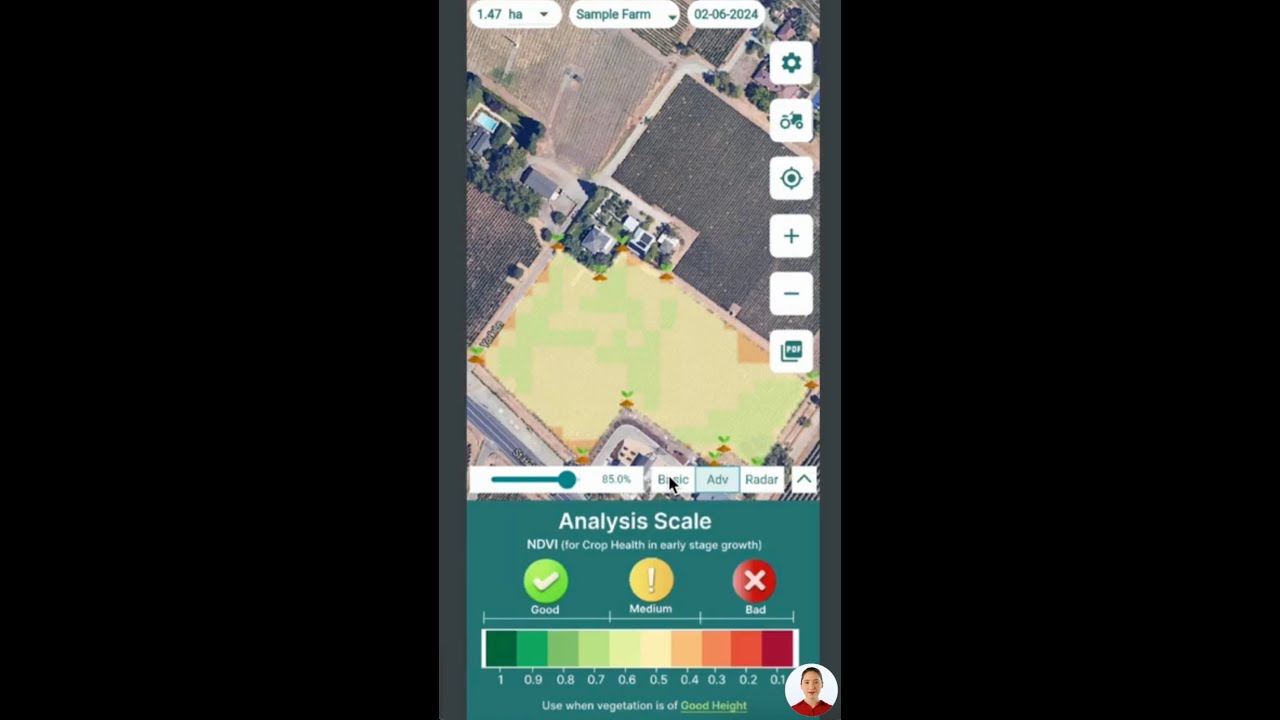Indiana’s Soil and Water Conservation Districts Secure $1.3 Million for Sustainable Agriculture Initiatives
“Indiana’s Soil and Water Conservation Districts received over $1.3 million in Clean Water Indiana grants for sustainable agriculture initiatives.”
“Indiana’s Soil and Water Conservation Districts received over $1.3 million in Clean Water Indiana grants for sustainable agriculture initiatives.”
We are thrilled to announce a significant development in Indiana’s pursuit of sustainable agriculture and improved water quality. The Indiana State Department of Agriculture (ISDA) and the Indiana State Soil Conservation Board have awarded over $1.3 million in Clean Water Indiana competitive grant funding to 16 soil and water conservation districts across the state, along with one organization. This substantial investment underscores Indiana’s commitment to environmental stewardship and the long-term health of its agricultural sector.

The Importance of Soil and Water Conservation
Soil and water conservation districts play a crucial role in maintaining the health of our natural resources. These districts work tirelessly to implement soil health improvement programs, promote cover crop incentives, and reduce agricultural runoff. The Clean Water Indiana grants will enable these districts to expand their efforts and implement a wide range of projects aimed at improving soil health, enhancing water quality, and promoting regenerative farming methods.
As we delve into the details of this significant funding, it’s worth noting that innovative technologies are increasingly playing a role in modern agriculture. For instance, Farmonaut offers advanced satellite-based farm management solutions that can complement these conservation efforts.
Breaking Down the Grant Distribution
Let’s take a closer look at how the $1.3 million in Clean Water Indiana grants will be distributed across the state:
| District Name | Grant Amount | Primary Project Focus |
|---|---|---|
| Kosciusko County SWCD | $52,721 | Soil Health Education |
| Delaware County SWCD | $128,000 | Invasive Species Control & Staffing |
| Greene County SWCD | $15,500 | No-Till Drill Purchase |
| Jefferson County SWCD | $160,650 | Soil Health & No-Till Drill Purchase |
| Jennings County SWCD | $50,000 | Cover Crop & Best Management Practices |
| Madison County SWCD | $120,000 | Urban Conservation Staffing |
| Marion County SWCD | $100,000 | Small Farm Practice Implementation |
| Morgan County SWCD | $60,000 | Seed Drill Purchase & Promotion |
| Orange County SWCD | $125,000 | Cost-Share Program |
| Posey County SWCD | $84,000 | Cover Crop Promotion |
| Spencer County SWCD | $20,000 | Pasture Management |
| The Nature Conservancy | $82,500 | Cover Crop Insurance Incentives |
| Washington County SWCD | $224,200 | Cost-Share & Education |
| Wayne County SWCD | $75,000 | Cover Crop & Pollinator Habitat Education |
| Wells County SWCD | $85,000 | Invasive Species Management & Cover Crops |
This distribution highlights the diverse range of projects that will be undertaken across Indiana, all aimed at promoting sustainable agriculture practices and improving water quality.
Spotlight on Key Projects
Kosciusko County SWCD: Pioneering Soil Health Education
The Kosciusko County Soil & Water Conservation District has been awarded $52,721 to implement a large-scale soil health focused education event over the next three years (2025-2027). This innovative project will also provide free soil samples to local producers, offering valuable insights into their soil health.
Led by the county-funded soil health specialist, these events are designed as interactive meetings that will provide a roadmap for collaborative exploration into:
- Soil health
- The soil food web
- Ecological risk of pest management strategies
- Developing long-term solutions for regenerative ag systems
This initiative aligns perfectly with the growing trend of precision agriculture, which aims to optimize farm management through data-driven insights. While Kosciusko County SWCD focuses on education, farmers can complement these efforts with tools like Farmonaut’s satellite-based crop health monitoring for real-time insights into their fields.
Jefferson County SWCD: Promoting Soil Health and No-Till Practices
Jefferson County SWCD received a substantial grant of $160,650 to focus on two critical areas:
- Promoting soil health on pasture and hay land to improve water quality
- Incentivizing the use of cover crops
Additionally, the district will purchase a no-till drill to assist landowners in improving the quality of their soil and water resources. This investment in equipment will have long-lasting benefits for the local farming community, enabling them to implement conservation practices more effectively.
“The competitive grants will fund various projects, including education events, soil sampling, and no-till drill purchases across Indiana.”
Marion County SWCD: Expanding Small Farm Practice Implementation
Marion County SWCD has been granted $100,000 to extend the reach of its federal Sustainable Agriculture Research and Education grant and soil health program. This funding will ensure that conservation planners beyond Marion County have the necessary training and tools to assist with small farm practice implementation.
The project aims to:
- Market Indiana’s conservation tools nationally
- Strive for a future multi-year agreement with the National Resources Conservation Service
- Provide long-term sustainability for the program beyond the timeframe of the proposed Clean Water Indiana grant
This initiative showcases Indiana’s commitment to not only local but also national agricultural sustainability efforts. It’s worth noting that while Marion County SWCD focuses on conservation planning, farmers can enhance their decision-making process with tools like Farmonaut’s AI-powered advisory system for personalized farm management strategies.

The Impact of Clean Water Indiana Grants
The Clean Water Indiana program, administered by the state’s soil conservation board and led by the ISDA, provides crucial financial assistance to landowners and conservation groups. This support is aimed at reducing runoff from non-point sources of water pollution, whether it’s on agricultural land, urban areas, or eroding stream banks.
Some of the key impacts of these grants include:
- Enabling districts to partner with other counties
- Addressing specific needs within their jurisdiction
- Participating in cost-share programs
- Hiring staff for enhanced support
- Providing technical assistance to farmers
- Implementing cover crop incentive programs
- Increasing watershed capacity
It’s important to note that while these grants provide significant support, farmers can further enhance their conservation efforts by leveraging modern agricultural technologies. For instance, Farmonaut’s satellite-based farm management solutions can provide real-time insights into crop health and soil moisture levels, complementing the initiatives funded by these grants.
Funding Sources and Requirements
The Clean Water Indiana program is funded by a portion of the state’s cigarette tax, showcasing Indiana’s commitment to reinvesting in its natural resources. The grants awarded through this program can support projects for up to three years, with grantees able to apply for any amount necessary to complete their proposed project.
Key requirements for the grants include:
- Each grantee must produce a match for their project, which can be cash or in-kind
- Projects requesting staffing require a 25% match for that component
- All other project areas require a 50% match
This matching requirement ensures that local communities and organizations are invested in the success of these conservation efforts, creating a collaborative approach to sustainable agriculture.
The Role of Technology in Modern Conservation Efforts
While the Clean Water Indiana grants provide crucial funding for on-the-ground conservation efforts, it’s important to recognize the role that modern technology plays in supporting these initiatives. Advanced agricultural technologies can complement and enhance the effectiveness of traditional conservation practices.
For example, Farmonaut offers a range of satellite-based farm management solutions that align well with the goals of soil and water conservation:
- Real-time crop health monitoring: Using multispectral satellite imagery, farmers can track vegetation health indices like NDVI, helping them make informed decisions about irrigation and fertilizer usage.
- AI-powered advisory system: Personalized farm management strategies based on satellite data and other inputs can help farmers optimize their resource use and reduce environmental impact.
- Resource management tools: These can aid in efficient water and nutrient management, supporting the goals of reducing agricultural runoff and improving water quality.
By combining traditional conservation practices with modern agricultural technologies, Indiana farmers can maximize the impact of these grants and move towards more sustainable and efficient farming methods.
The Future of Sustainable Agriculture in Indiana
The allocation of these Clean Water Indiana grants represents a significant step forward in Indiana’s commitment to sustainable agriculture and environmental stewardship. By supporting a diverse range of projects across the state, from soil health education to innovative cover crop incentives, Indiana is positioning itself as a leader in agricultural conservation.
As we look to the future, it’s clear that the integration of traditional conservation practices with modern agricultural technologies will play a crucial role in achieving long-term sustainability. The projects funded by these grants, combined with the adoption of advanced farm management tools, have the potential to:
- Significantly improve soil health across the state
- Reduce agricultural runoff and enhance water quality
- Increase the adoption of cover crops and no-till practices
- Educate the next generation of farmers on sustainable agriculture methods
- Boost farm productivity while reducing environmental impact
For farmers looking to complement these conservation efforts with cutting-edge technology, Farmonaut’s suite of tools offers a powerful solution. From satellite-based crop monitoring to AI-powered advisories, these technologies can help farmers make data-driven decisions that align with sustainable agriculture goals.
Conclusion: A Collaborative Approach to Agricultural Sustainability
The awarding of over $1.3 million in Clean Water Indiana grants to soil and water conservation districts across the state marks a significant milestone in Indiana’s journey towards sustainable agriculture. This investment not only demonstrates the state’s commitment to environmental stewardship but also recognizes the critical role that local conservation districts play in implementing effective soil and water conservation practices.
As we’ve explored throughout this article, the funded projects span a wide range of initiatives, from soil health education and cover crop promotion to equipment purchases and invasive species management. This diverse approach ensures that multiple aspects of agricultural sustainability are addressed, creating a comprehensive strategy for improving Indiana’s soil health and water quality.
The success of these initiatives will rely on the collaborative efforts of soil and water conservation districts, farmers, landowners, and agricultural technology providers. By combining traditional conservation practices with modern farming technologies, Indiana is well-positioned to lead the way in sustainable agriculture.
We encourage farmers and landowners to take advantage of these grant-funded programs and to explore how technology can further enhance their conservation efforts. Together, we can build a more sustainable and productive agricultural sector that will benefit Indiana for generations to come.
FAQ Section
Q: What is the Clean Water Indiana program?
A: The Clean Water Indiana program is administered by the Indiana State Soil Conservation Board and led by the Indiana State Department of Agriculture. It provides financial assistance to landowners and conservation groups working to reduce runoff from non-point sources of water pollution.
Q: How much funding was awarded through the Clean Water Indiana grants?
A: Over $1.3 million was awarded to 16 soil and water conservation districts and one organization across Indiana.
Q: What types of projects will be funded by these grants?
A: The grants will fund a variety of projects, including soil health education, cover crop incentives, no-till drill purchases, invasive species control, and urban conservation initiatives.
Q: How long can these grant-funded projects run?
A: Projects funded by Clean Water Indiana grants can be up to three years in length.
Q: Is there a matching requirement for these grants?
A: Yes, grantees are required to produce a match for their project, which can be cash or in-kind. Projects requesting staffing require a 25% match for that component, while all other project areas require a 50% match.
Q: How can farmers benefit from these grants?
A: Farmers can benefit through cost-share programs, access to equipment like no-till drills, free soil sampling, educational events, and technical assistance for implementing conservation practices.
Q: Can technology play a role in these conservation efforts?
A: Absolutely. While not directly funded by these grants, technologies like Farmonaut’s satellite-based farm management solutions can complement conservation efforts by providing real-time data on crop health, soil moisture, and other key metrics that support sustainable farming practices.
Explore Farmonaut’s Agricultural Technology Solutions
As we continue to advance sustainable agriculture practices in Indiana and beyond, innovative technologies play a crucial role in supporting these efforts. Farmonaut offers a range of tools that can complement the initiatives funded by the Clean Water Indiana grants:
- Satellite-Based Crop Monitoring: Get real-time insights into your crop health and soil moisture levels.
- AI-Powered Advisory System: Receive personalized recommendations for optimal farm management.
- Resource Management Tools: Efficiently manage water and nutrients to reduce environmental impact.
Explore how Farmonaut can enhance your farming practices:
For developers interested in integrating Farmonaut’s technology into their own solutions, check out our API and API Developer Docs.
Earn With Farmonaut
Earn 20% recurring commission with Farmonaut’s affiliate program by sharing your promo code and helping farmers save 10%. Onboard 10 Elite farmers monthly to earn a minimum of $148,000 annually—start now and grow your income!
Learn more about our Affiliate Program and start earning today!
Farmonaut Subscriptions
By leveraging both the initiatives funded by the Clean Water Indiana grants and innovative agricultural technologies, Indiana farmers can lead the way in sustainable agriculture, ensuring the long-term health of our soil, water, and farming communities.




















